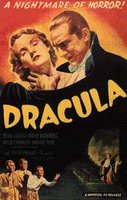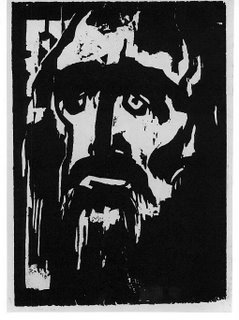When I was a young tyke (in 5th grade or so), I became captivated by black and white horror movies. I read the books that inspired them and books about them. Here are some movie posters of my favorites:

I first saw the 1925 silent version of
The Phantom of the Opera when I was in fourth grade. Miss Mullis took us to the Alabama Theatre which is an ornate building built in the 1920s. They have what is called the "Mighty Wurlitzer" organ to play during the silent movies. Every Halloween
The Phantom is played, accompanied by Toccata and Fugue in D Minor by Bach.
My little girlfriend at the time was Mary Elizabeth. She sat next to me and ended up in my lap during the famous unmasking scene. It was then I learned the benefits of scary movies. This is a great movie which combines fright, creepiness, and empathy. It is one of my favorite films of all time. I saw the Andrew Lloyd Webber version (2004) of the movie the other night at home and was highly disappointed. It should be illegal for the Phantom of the Opera to break out in song when he is at his most menacing.
 Nosferatu
Nosferatu is an interesting and highly creepy movie. It is also a silent movie, but it was made earlier (1922) in Germany. Another interesting aspect of the movie is how ssssllllloooowww the villian is. In the most famous scene, it takes Count Orlok about half the movie to climb a set of stairs. It's like
The Blob. How can you not get away from it?
When I was a freshman at the University of Alabama, one of my English professors caught wind that I had seen the movie and liked it. She told me she believed Orlok was cast to represent exaggerated stereotypical Jewish features. That had not occurred to me, but I could see how that could happen in 1922 Germany. Legend had it that Max Schreck, the actor who played the Count, was a vampire himself. I am sure that was good for an extra couple of bucks at the box office.

One really cannot discuss classic horror without discussing the 1931 version of
Frankenstein. What could I really say that has not been said? An interesting snippet about this movie is how the monster did not talk. Against the wishes of Boris Karloff (the actor who played the monster), the producers decided the monster should talk in the sequel. The sequel is when you hear the monster say "Fire!" and "Friend!" and things like that.
Great movie. Better book.

This is the king of them all in the world's eyes and really speaks for itself. The 1931 version of
Dracula is the standard by which horror movies are made. The staircase descent scene is still quite chilling. Kids still dress up as Dracula on Halloween and will continue to do so for the forseeable future. I will say that I read the book again a couple of years ago and it will absolutely make the hairs on you neck stand up.
On a related note, I saw the movie
Blacula a couple of months ago. It is a hoot.
 The Wolf Man
The Wolf Man was made in 1941 and starred Lon Chaney, Jr., son of the legendary Lon Chaney. Lon Chaney, Sr. was, of course, the star of the 1925 version of
The Phantom of the Opera among other movies. Bela Lugosi of
Dracula fame is also in this movie.
The Wolf Man is creepiest when the Lawrence Talbot (the protagonist) has not changed into a werewolf. He is bitten by a werewolf and goes to see a really creepy fortune teller. She tells him the most famous line in the movie:
Even a man who is pure in heart/and says his prayers by night/may become a wolf when the wolfbane blooms/and the Autumn moon is bright.I highly recommend the movie.
 The Mummy
The Mummy was made in 1932, following closely behind
Dracula and
Frankenstein. When I was in 5th grade, I became fascinated somehow with ancient Egyptian history, especially mythology. I read every book a young boy could possibly understand about the subject. Mrs. Beckham was such a good Social Studies teacher, it was captivating. Anyway, my love for classic horror and ancient Egypt met at this movie. Boris Karloff played both the mummy and Frankenstein's monster, marking him for legendary status.
So, there we have it. Another interesting tidbit about eccentric me. I never did like the 80's slasher movies or any other kind of modern horror. For some reason, these classic horror movies really captivated me, though. I still watch them whenever I can.



 The medieval monk and scholar
The medieval monk and scholar  I first saw the 1925 silent version of
I first saw the 1925 silent version of  Nosferatu
Nosferatu


 The Mummy
The Mummy 